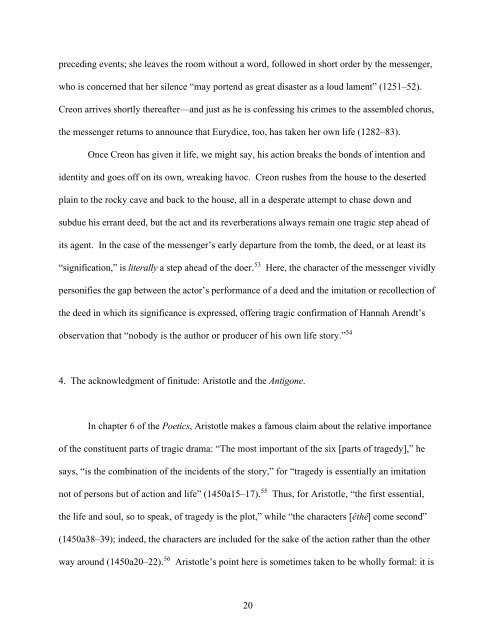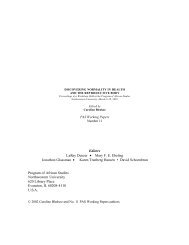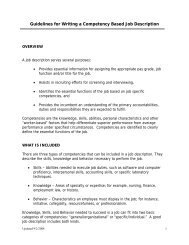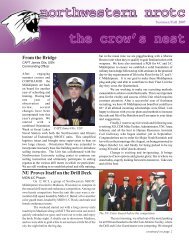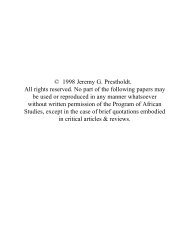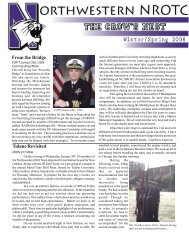TRAGIC RECOGNITION: ACTION AND IDENTITY IN ANTIGONE ...
TRAGIC RECOGNITION: ACTION AND IDENTITY IN ANTIGONE ...
TRAGIC RECOGNITION: ACTION AND IDENTITY IN ANTIGONE ...
Create successful ePaper yourself
Turn your PDF publications into a flip-book with our unique Google optimized e-Paper software.
preceding events; she leaves the room without a word, followed in short order by the messenger,<br />
who is concerned that her silence “may portend as great disaster as a loud lament” (1251–52).<br />
Creon arrives shortly thereafter—and just as he is confessing his crimes to the assembled chorus,<br />
the messenger returns to announce that Eurydice, too, has taken her own life (1282–83).<br />
Once Creon has given it life, we might say, his action breaks the bonds of intention and<br />
identity and goes off on its own, wreaking havoc. Creon rushes from the house to the deserted<br />
plain to the rocky cave and back to the house, all in a desperate attempt to chase down and<br />
subdue his errant deed, but the act and its reverberations always remain one tragic step ahead of<br />
its agent. In the case of the messenger’s early departure from the tomb, the deed, or at least its<br />
“signification,” is literally a step ahead of the doer. 53 Here, the character of the messenger vividly<br />
personifies the gap between the actor’s performance of a deed and the imitation or recollection of<br />
the deed in which its significance is expressed, offering tragic confirmation of Hannah Arendt’s<br />
observation that “nobody is the author or producer of his own life story.” 54<br />
4. The acknowledgment of finitude: Aristotle and the Antigone.<br />
In chapter 6 of the Poetics, Aristotle makes a famous claim about the relative importance<br />
of the constituent parts of tragic drama: “The most important of the six [parts of tragedy],” he<br />
says, “is the combination of the incidents of the story,” for “tragedy is essentially an imitation<br />
not of persons but of action and life” (1450a15–17). 55 Thus, for Aristotle, “the first essential,<br />
the life and soul, so to speak, of tragedy is the plot,” while “the characters [êthê] come second”<br />
(1450a38–39); indeed, the characters are included for the sake of the action rather than the other<br />
way around (1450a20–22). 56 Aristotle’s point here is sometimes taken to be wholly formal: it is<br />
20


